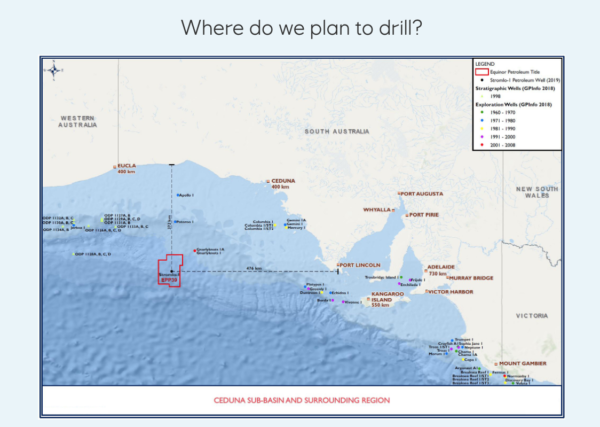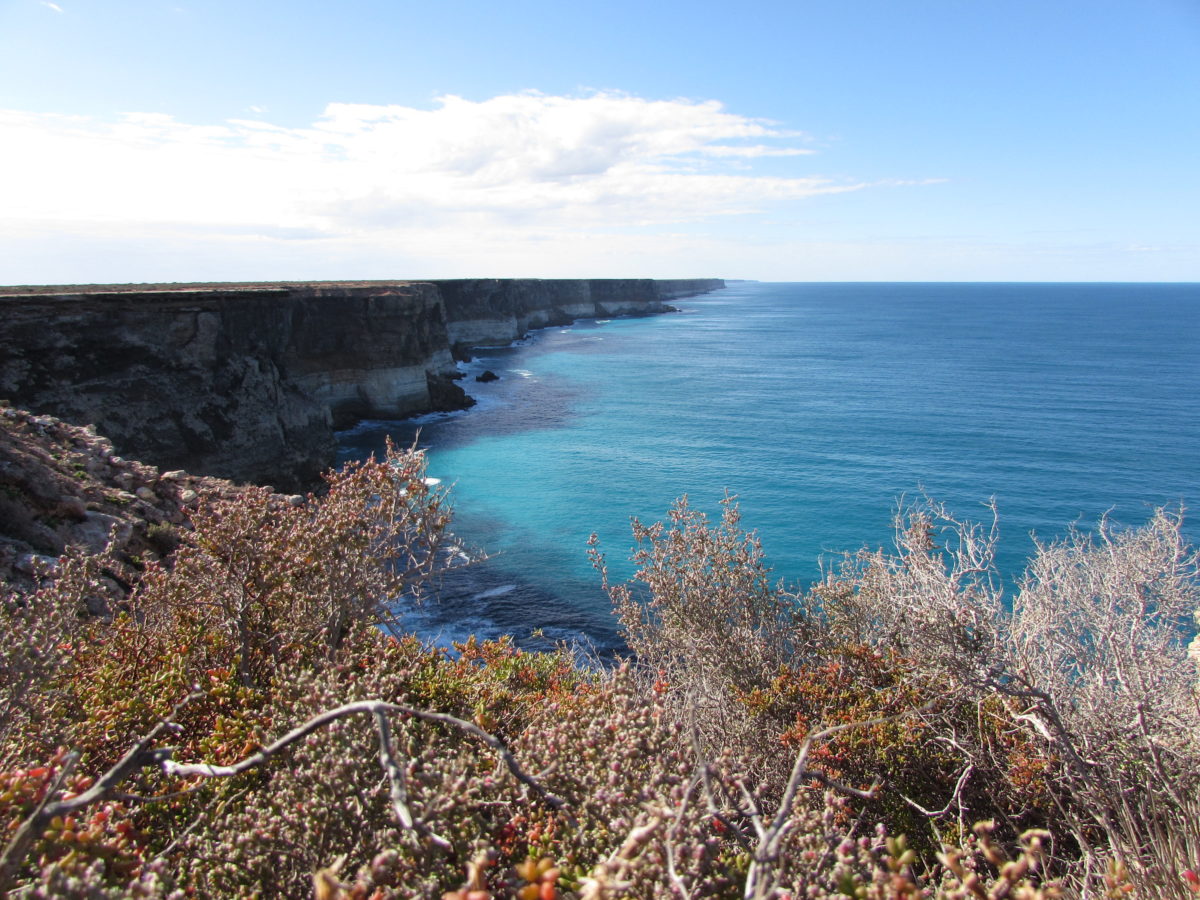In welcome news this morning for environmental activists and people laboured by foresight, Equinor informed a “disappointed” Australian government of its decision to discontinue its exploration drilling plan in the Great Australian Bight (the Bight). The Norwegian oil giant said the project’s potential was not “commercially competitive compared with other exploration opportunities in the company.”
One hopes the “other opportunities” the company refers to are in its growing renewables portfolio. So far, Equinor has invested in two utility-scale solar farms, a 40% share of the 162 MW Apodi Solar Farm in Brazil and a 50% stake in the 117 MW Guanizul 2A solar project in Argentina. Equinor is a larger investor in offshore wind, but if the company is to meet its modest ambitions of reducing net carbon intensity by at least 50% by 2050, perhaps it should think about exploring the abundant opportunities in solar and wind in Australia.
The Australian government granted Equinor approval last December to begin exploratory drilling in the Bight, and though that particular exploration, Stromlo-1, has been terminated, Equinor still maintains other Australian interests. “We will engage with the federal and state authorities regarding our decision to discontinue the exploration programme,” said Jone Strangeland, Equinor’s country manager for Australia. “We hold an exploration permit offshore Western Australia and will maintain other ongoing interest and activities in Australia.”
Equinor, who had been granted environmental approval to drill 372 km south of the Nullabor coastline, follows in the backtracking footsteps of BP, who abandoned drilling plans in 2016, Chevron, who did much the same in 2017, and Melbourne-based Karoon Energy which abandoned plans last November.

The Australian government remains open to drilling in the Bight despite fervent protests from environmental activists and indeed anyone who thinks that an oil spill in the Bight is simply too great a risk. Three particularly vocal groups have been the Wilderness Society, who launched an action in the Federal Court against the National Offshore Petroleum Safety and Environmental Management Authority (NOPSEMA) for granting Equinor environmental approval, Greenpeace, and the Great Australian Bight Alliance.
“The Wilderness Society welcomes Equinor’s decision to responsibly withdraw from the marine wilderness that is the Great Australian Bight,” said Wilderness Society South Australian Director, Peter Owen. “It’s been a while coming, but the right decision is the right decision and we have no doubt that the hundreds of thousands of people that have supported the campaign to Fight for the Bight will be both delighted and relieved to hear this news.”
“Four major oil companies have now left the Bight since the Fight for the Bight began,” continued Owen. “Opening up a new high-risk frontier oil field when we are hurtling towards catastrophic climate change is madness. We are now calling on the Australian Government to listen to the people and permanently protect the unique waters of the Great Australian Bight from drilling for good.”
Greenpeace similarly welcomed the decision. CEO of Greenpeace Australia Pacific David Ritter described the news as an “incredible win for people power and nature…coastal communities, Indigenous traditional owners, surfers, the seafood industry, tourism operators and other local businesses.”
Environmental concerns are not overblown, indeed, according to a leaked draft environment plan obtained by the ABC, the “worst credible case discharge scenario, which is to say the worst case oil spill from drilling in the Bight could reach as far as Port Macquarie, two thirds of the way up the New South Wales coastline.
Federal Resources Minister Keith Pitt said Equinor’s decision to discontinue its exploration is “disappointing.” “I know many will find Equinor’s decision not to proceed with this exploration project in the Great Australian Bight extremely disappointing, and it is particularly hard for South Australia.” Perhaps what Pitt meant to say was: “I personally know many…”
“The Liberals and Nationals Government remains committed to encouraging the safe development of Australia’s offshore petroleum resources,” continued Pitt. “The Bight Basin remains one of Australia’s frontier basins and any proposals for new oil and gas fields in this area will be assessed fairly and independently.”
According to research from the Australia Institute, 84% of South Australians and 70% of Australians generally want to see the Bight given World Heritage protection.
This content is protected by copyright and may not be reused. If you want to cooperate with us and would like to reuse some of our content, please contact: editors@pv-magazine.com.









By submitting this form you agree to pv magazine using your data for the purposes of publishing your comment.
Your personal data will only be disclosed or otherwise transmitted to third parties for the purposes of spam filtering or if this is necessary for technical maintenance of the website. Any other transfer to third parties will not take place unless this is justified on the basis of applicable data protection regulations or if pv magazine is legally obliged to do so.
You may revoke this consent at any time with effect for the future, in which case your personal data will be deleted immediately. Otherwise, your data will be deleted if pv magazine has processed your request or the purpose of data storage is fulfilled.
Further information on data privacy can be found in our Data Protection Policy.